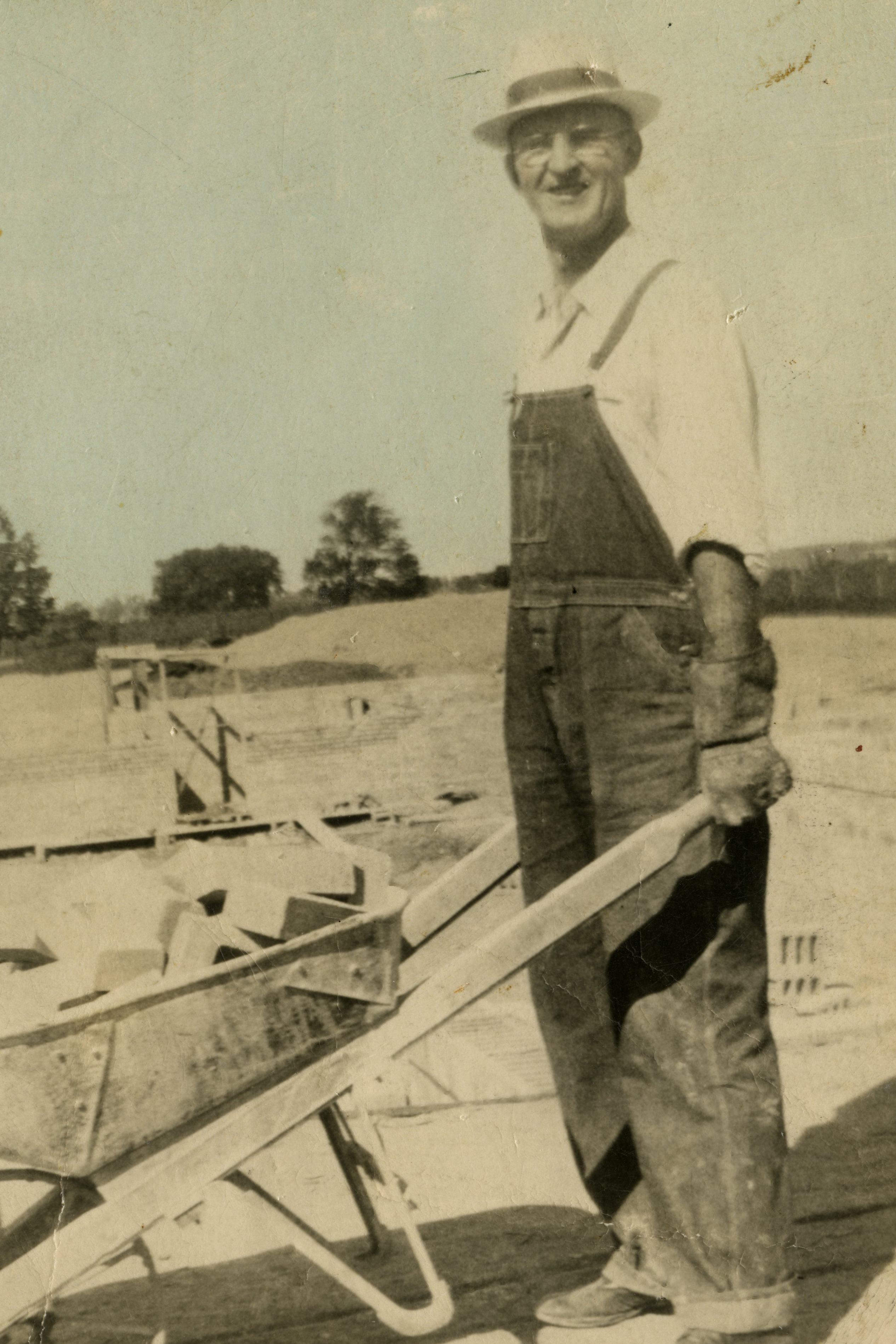July 9, 1925 was a memorable day for John J. DeWaard and his wife Hattie. After studying at both Calvin College and Princeton Seminary, DeWaard had been called to become the pastor of the First Presbyterian Church of Cedar Grove, Wisconsin. Recommended by his professor and mentor, Geerhardus Vos, DeWaard was warmly received by both the congregation and by the Milwaukee Presbytery of the PCUSA.
DeWaard’s performance during his ordination exams had impressed the Presbytery. One Presbyter stated “I heartily recommend for approval all the parts of trial submitted to me: and bespeak for our brother a life of great usefulness in the ministry of the church, which in time I think will be in a professor’s chair, perhaps the one once occupied by Dr. Charles Hodge.”
A second examiner was equally enthusiastic, saying, “I am personally glad that this young brother is seeking a part and place in the ministry of our Church.”
DeWaard was ordained and installed in Cedar Grove, and the early years of his pastorate were peaceful and productive. The people loved their pastor, and his teaching and preaching ministry led to their growing maturity in the faith.
The bliss enjoyed by the folk of Cedar Grove began to dissipate due to the rising influence of modernism in the church. One Saturday evening, there was a knock at the door of the manse. A Sunday School teacher had some questions for her pastor.
Showing him the denominational materials, she pointed out the problem. “Domine,” she said, “I don’t understand the Sunday School material. It says here that they’re supposed to circle which was the most important man. There are three other people mentioned, then ‘Jesus Christ.’ I don’t understand. He doesn’t belong in here with these other people.”
DeWaard studied the material emanating from the denominational sources, and found that it was laced with liberalism and unbelief. This could not be allowed in Cedar Grove. Indeed, it must be resisted throughout their great church.
As the watchman on the wall, DeWaard blew the trumpet to warn his flock of the danger of modernism. Some did not agree and would not heed his warning. The vast majority of the congregation would side with the pastor in his fight against modernism.
DeWaard was not content to simply warn his own congregation. He took the fight to the Milwaukee Presbytery. His staunchest ally was Oscar Holkeboer, pastor of the church in nearby Oostburg. Holkeboer also saw the inherent problems with modernism, and he would join DeWaard in resisting the agenda.
Matters came to a head when a small minority from First Presbyterian Church requested the Presbytery to dissolve the pastoral relationship between DeWaard and the Church. Over ninety percent of the congregation stood with their pastor and asked that the Presbytery not act to dissolve that relationship. Unsurprisingly, the Presbytery favored the tiny minority and acted against DeWaard.
DeWaard appealed first to the Synod of Wisconsin and then to the 1936 General Assembly of the PCUSA. Both appeals were denied, and the judgment of the Presbytery was upheld.
On the Sunday morning when the Presbytery took the action to remove DeWaard, drama ran high. DeWaard was allowed to preach a farewell sermon to the congregation. He took aim at the modernism and unbelief running rampant in the church. DeWaard pulled no punches.
Upon the conclusion of his message, he left the pulpit and walked out of the building. First his family, and then most of the congregation arose to follow their beloved pastor. By the time the exodus had occurred, a handful remained to hear the pronouncement from the Presbytery representative.
From that group of conscientious objectors a new church was formed – Calvary Orthodox Presbyterian Church. DeWaard was the first pastor of the congregation, which quickly joined the newly formed Presbytery of Wisconsin and Upper Michigan.
DeWaard would remain for a few more years in Cedar Grove before taking a call to Rochester, New York. He served that congregation until his retirement. Even after retiring from active ministry, DeWaard was a popular preacher who was much in demand. Canadians especially appreciated the fact that he could preach in both English and Dutch.
His homegoing was as sweet and simple as you could imagine. His daughter Mary tells the story well: “In August of 1959, he was in Ottawa, Canada where he was scheduled to preach at a Christian Reformed church. He was to preach in the morning in English and then Dutch in the afternoon. He was in big demand in Canada. So he traveled by himself and he was to preach on that Sunday and he went up early Saturday night so he could spend some time preparing for the Lord’s day. In the morning the hostess couldn’t rouse him and he had died quietly in his bed.” Thus ended the earthly race of that quiet hero and a valiant warrior John J. DeWaard.

© 2026 The Orthodox Presbyterian Church